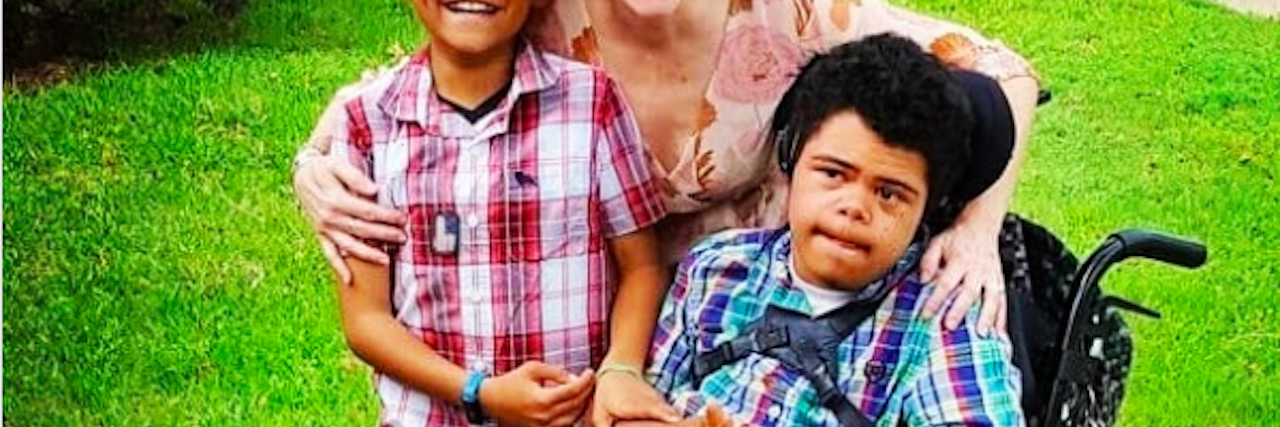When Kids See My Son With Disabilities and Ask, 'What's Wrong With Him?'
As a child, I was very focused on right and wrong. When I cried (which was often), my friends would ask, “What’s wrong?” When I said I didn’t feel good, my mom would ask, “What’s wrong?” All that focus on “wrongness” probably influenced my development into an anxious perfectionist.
A while back, I decided to replace the question, “What’s wrong?” with “What happened?” “What’s the matter?” or “What’s going on?”
I made the transition when people started asking me what’s wrong with my son, Kory. Kory has Down syndrome, he had a stroke in utero and he has epilepsy. At 16, he doesn’t talk or walk yet. He uses a big red medical stroller that attracts considerable attention. Children want to know why he’s so big and still in a stroller. Trying to interpret based on their limited experience, they sometimes ask if he’s a baby.
I know many parents of children with disabilities struggle with this question. In those moments, it helps me to remember who I was before Kory. No one close to me had a serious disability. Disability was foreign to me, and kind of scary because I was afraid of “imperfection.” I probably wondered what was “wrong” with people in wheelchairs, but I never once asked.
Most people don’t acknowledge Kory. So, I consider it a blessing when kids take the time to notice him and ask about him. They are touched by him or at least curious. They are opening the window of communication with their question, even if it is judgy.
At that moment, I have the choice to open the window of communication wider or slam it shut. So, I embrace the question, “What’s wrong with him?” I usually answer, “He’s unique, isn’t he?” They usually respond, “Yes.” I ask, “Do you want to know what happened to him?” They do.
I explain there was an accident in his brain, and so his brain doesn’t talk to his arms and legs the way our brains do. They sometimes ask if he will ever walk. I say we work on it every day, and perhaps one day he will.
I always make sure to tell them Kory is the strongest and happiest person I know, and that he has helped me know true love. And finally, I say, “So, we really don’t see him as having anything ‘wrong.’ He has challenges, and those challenges are part of what make him so wonderful. Does that make sense to you?” They answer, “Yes.” And I close with, “And just so you know, you don’t have to be perfect to be wonderful either.”
I deeply value these conversations because not only do kids learn that people with disabilities can be wonderful, but they also hear that at least one adult doesn’t expect perfection from them.
I wasn’t born a perfectionist — I learned it. But being a perfectionist made me anxious and risk-averse, and I was never going to fulfill my potential until I rejected that thinking. To succeed in life, our kids need to internalize the belief that failures are part of the learning journey. Will you join me in spreading the word?
Patty Bates-Ballard is Creative Director and Owner of WordSmooth, co-author of the book “Navigating Diversity,” and developer of the Harvesting Respect communications education program. She is the mom of two boys, Kory and Kaden.

